In routinely restricted world of Old City, Bohri Kadal hosts a convection of sorts inside a tea shop, tucked at the entrance of the legendary Gadi Kocha — the address of the traditional spice-sellers of the valley. In this photo story, Free Press Kashmir’s photo chief captures the reflective conversation between the four generations (4G) inside the tea shop and narrates his own inability to share good memories.
The greying hippies and the nostalgic romantics of yore, including some professors call it Kashmir’s own Boston Tea Party.
New Delhi had finally cleared decks for the high-profile prisoner swap deal in the heart of Downtown in late eighties. The sensational walk to freedom for Rubaya Sayeed—the medical intern daughter of then Home Minister of India Mufti Mohammad Sayeed abducted by Jammu and Kashmir Liberation Front (JKLF) militant outfit—had turned Bohri Kadal square in to a literal liberation zone, where two masked dissidents would climb on a pole, to cheers and chants of the charged crowd.
For VP Singh’s Delhi Sarkaar, it was a full display of an ‘audacious’ Azadi campaign. And to contain that, it shortly dispatched its old Kashmir manager to Raj Bhavan—Jagmohan—the man who would soon preside over multiple massacres in Kashmir Valley.
ALSO READ: Jagmohan: He came as a ‘nurse’, but…
In that stirring crowd turned up to give a rousing reception to the released captives of JKLF—the insurgent outfit seeking Kashmir’s independence from Indian State—were some regulars of a tea shop, tucked in Bohri Kadal’s medieval lane.
On style of the December 16, 1773 Boston Tea Party—the culmination of a resistance movement in America’s Boston state against British colonisers, the December 13, 1989 Bohri Kadal Tea Party saw some tea lovers becoming the part of the rousing anti-India protest gathering, which soon went rampant and widespread across the Vale.
That moment of revolt was to change the destiny of many of these tea aficionados.
Soon some of them were undertaking a treacherous journey to the other side of Kashmir to become the part of armed uprising against Indian State in Kashmir. Today, many of them have become tombstones in the sprawled martyrs’ cemeteries of downtown, while others are living like commoners devoid of yesteryears’ swagger attached to their name.
But a few of them are still keeping the tea shop busy with their reflections.
The tea shop tucked in the busiest and congested lane became an unusual meeting point for the four men — from four generations — who never knew each other till one chilly evening.
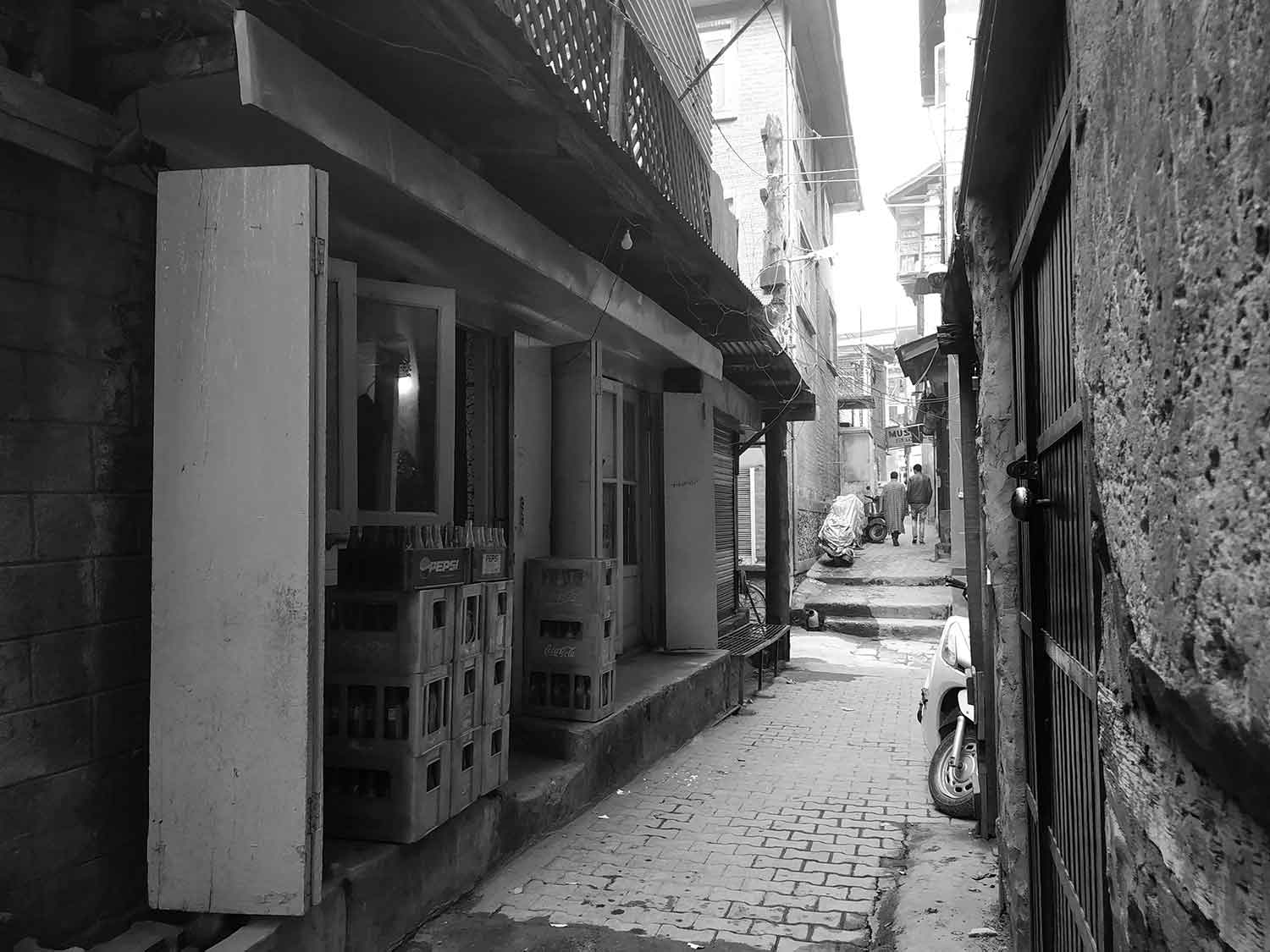
The medieval lane where the tea shop is located.
These men, who met merely by chance, expounded the anecdotes of past to virtually kill the chill of the foggy sundown inside the single-storied shop.
The nameless tea shop, painted in light green colour with a classic chipped wall—an architectural trend of 70’s when people used to decorate their kitchens with broken tiles, is run and owned by Abdul Rashid.
Although the place isn’t too spacious to accommodate a multitude of tea sippers, but it’s the place where one can get enough to refresh and reinvigorate the good old days.
As I stepped inside the poorly lit shop, it was bereft of footfall. On the right side of the shop entrance is a wooden counter where the tea-maker Rashid prepares tea on a gas stove. A smiling septuagenarian man seated nearby was reading a daily Urdu newspaper. He briefly raised his gaze as I entered and then resumed reading again.
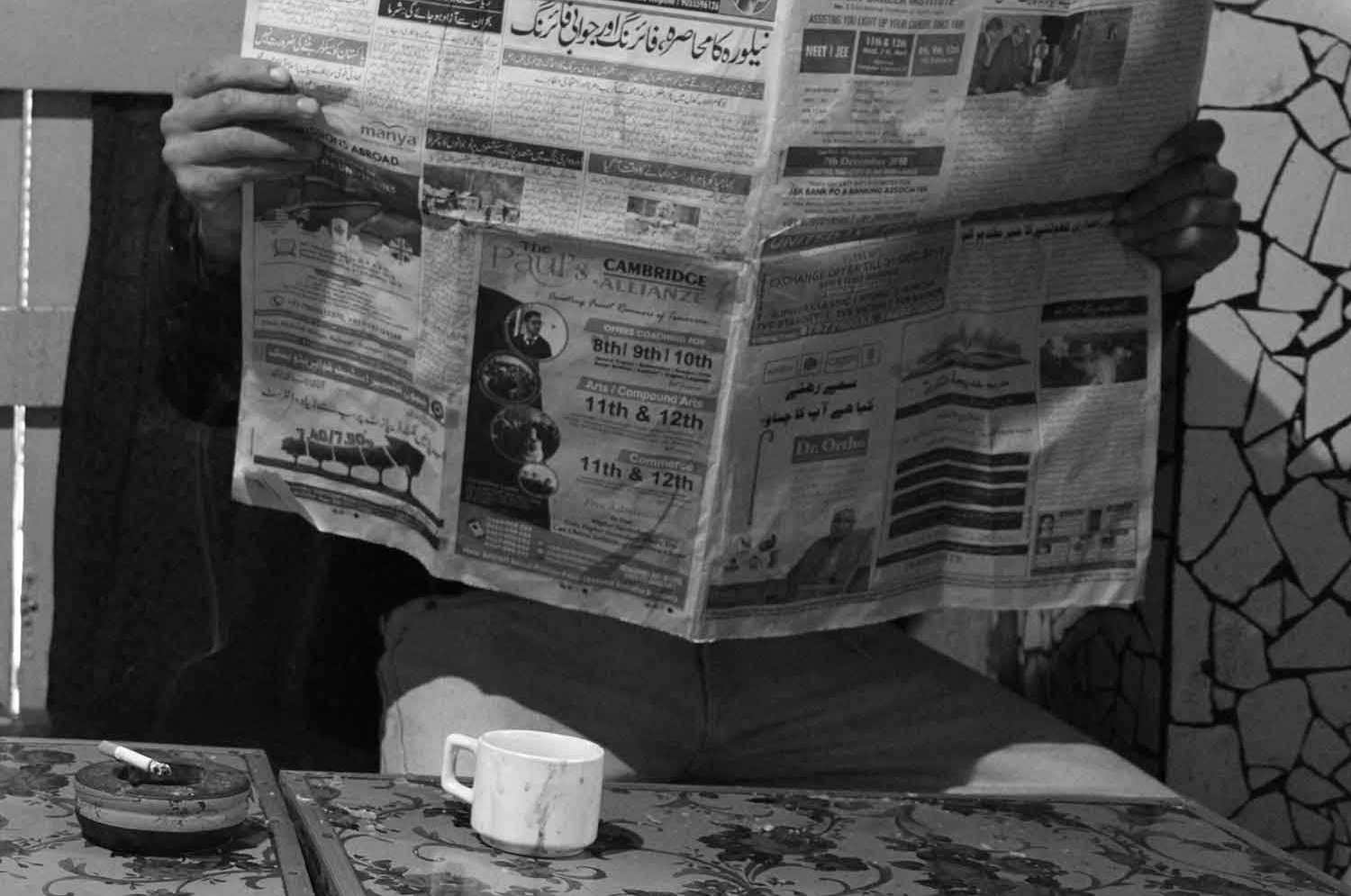
An old dusty clock hung on the wall, hardly noticeable, along with a few outdated and old calendars. Television, which keeps most of the people spellbound to the shop, played old Hindi film songs, adding to the shop’s vintage ambiance—making it a favourite zone of dreamy and nostalgic men of different professions.
I headed for an empty table, sat on steel bench covered in golden plush and ordered a cup of tea.
Some five minutes later, the old man in his 70s looked at me over the top of his newspaper and said: “Our childhood was the golden age. Everything was peaceful. Now things have turned ugly. Look at the newspaper, even this too bleeds.”
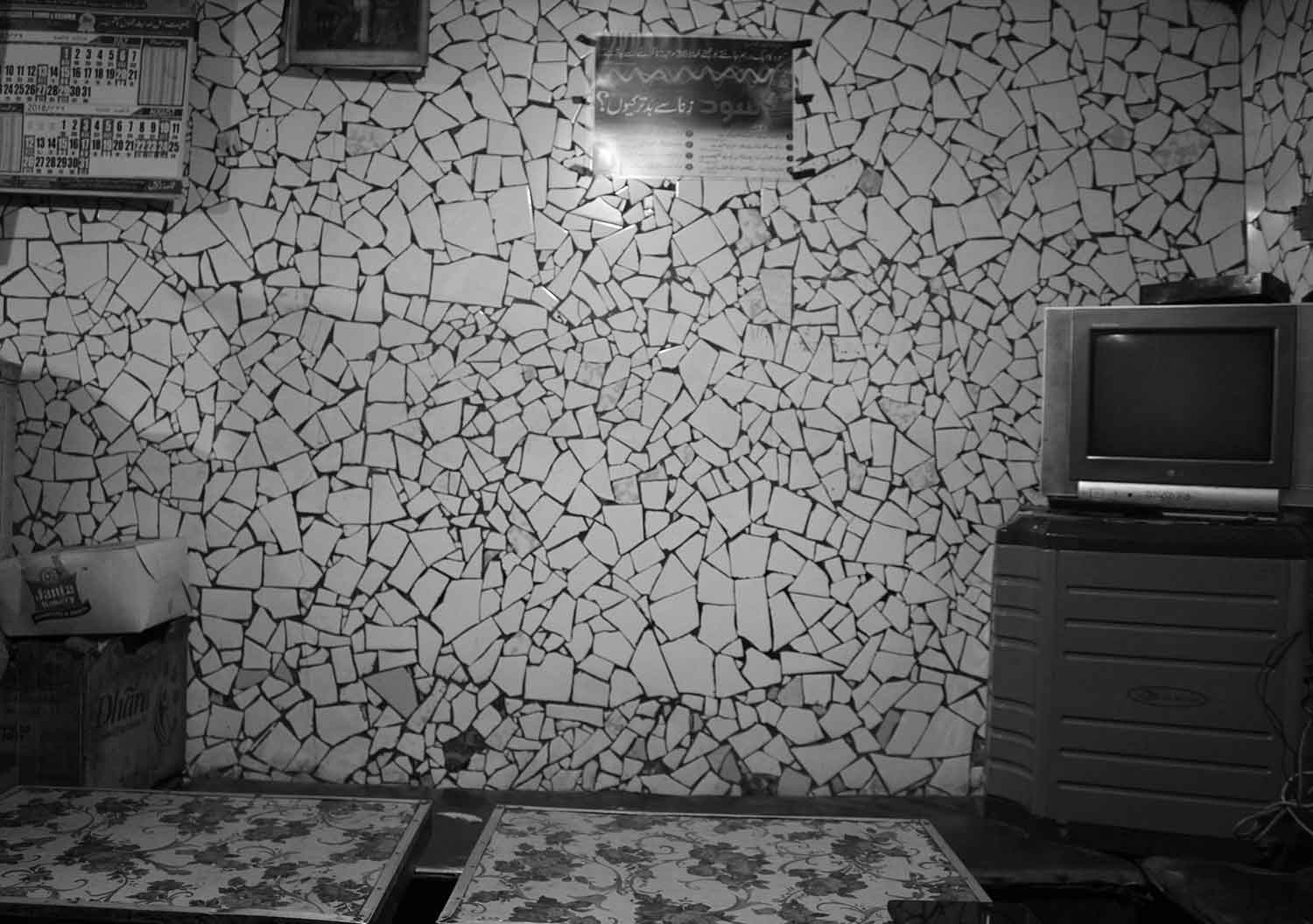
The old man’s brief monologue caught the attention of the tea-maker washing cups. He too joined the talk. With the air of a political orator, he started talking about the ‘best years’ of his life. “It was the best of times,” he said, carefully weighing his words and tone, “when one man was enough to take care of 15 family members.” But now, he rued, “every mouth has to earn to feed itself.”
Although sounding like those senior citizens habitual of being dismissive and disgruntled about the current times, he did score some points. “Blessings,” he said, “have vanished from this place.”
After a brief lull, now the two men in mid-50s— simultaneously smoking cigarettes and sipping tea, started talking, in intervals, about the life they wish to relive.
“We’re of same age, and mostly we’ve watched every single movie that was screened in cinema theatres during mid-70s in Srinagar,” one of them reflected with a longing demeanour.
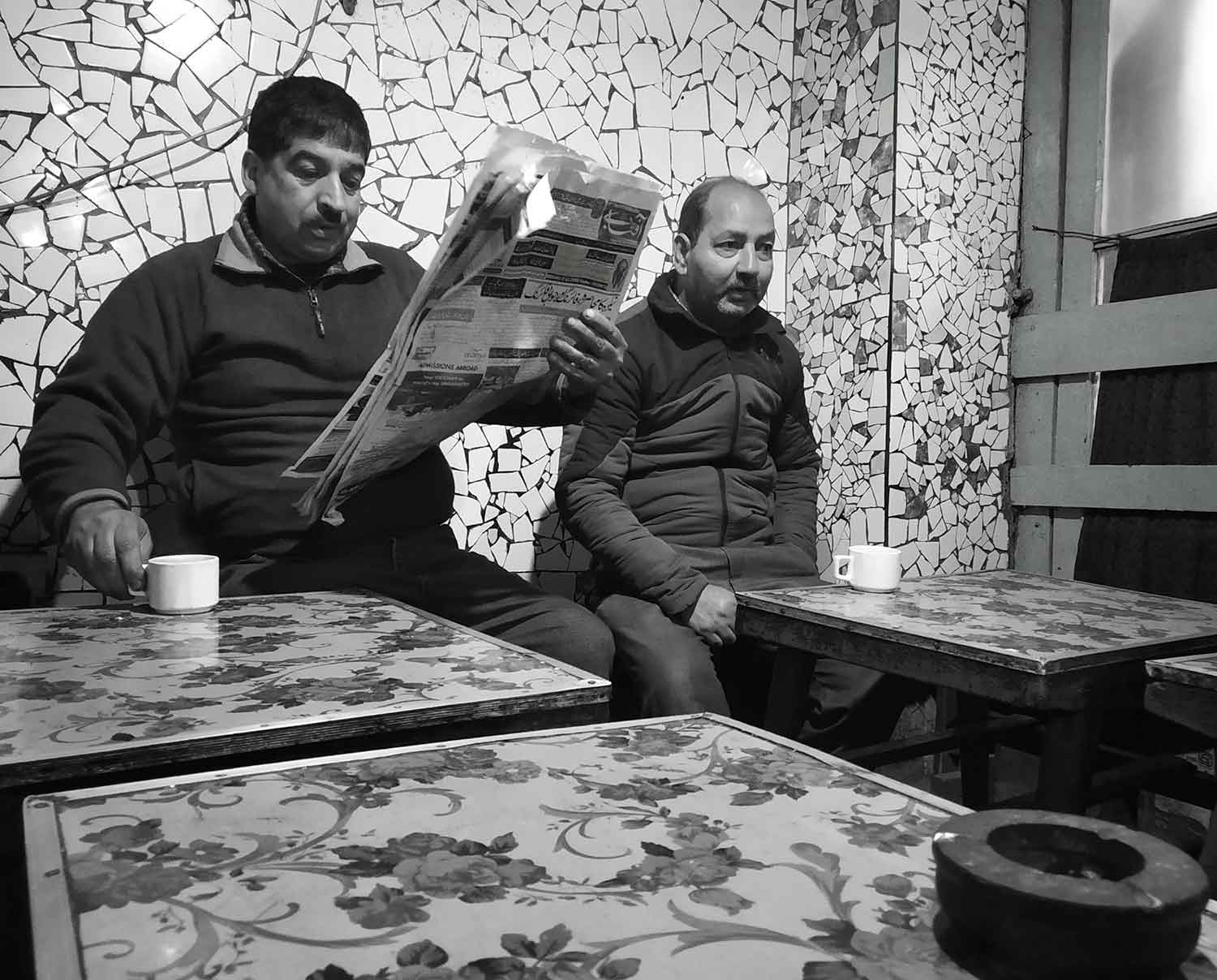
“People used to roam around during nights,” another man chipped in. “Everything was beautiful. We used to loudly sing songs on the streets after coming out from cinemas. Never cared about other people. But now, life is completely opposite: dark and ugly.”
Finally when it was my turn to speak, I could hardly utter a word. Born in the tumultuous 90s—bereft of memories and filled with nightmares—I remained silent throughout the discussion, as I had nothing substantial to share.
I felt like a misfit in the company of the opinionated tea aficionados talking their past which they mostly revisit as an escape route from the prevailing turmoil. As they spoke about architecture, Bollywood and politics, I could only give them a patient hearing, till the deepening twilight concluded the convention and brought down shutters over the tea shop.
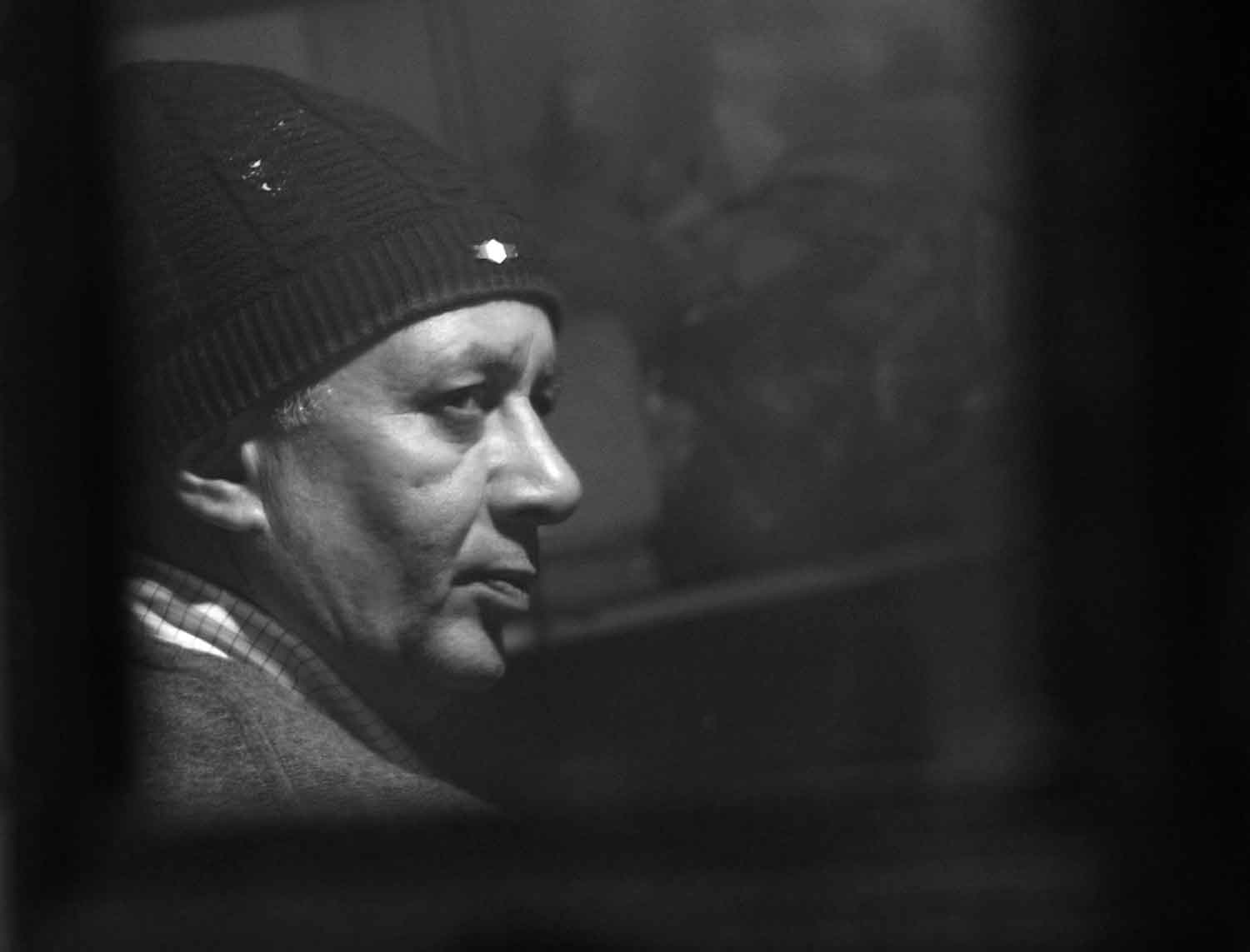
Abdul Rashid, owner of the nameless tea shop.
On the deserted streets outside, I was soon taking a lonely walk home, mulling over the musings that three generations ahead of me shared in the shop. My inability to make and share good memories in the city, torn asunder by the decadal conflict, was unsettling me. And for a while, I failed to understand: which’s darker—my city, or my memories.
Like this story? Producing quality journalism costs. Make a Donation & help keep our work going.






